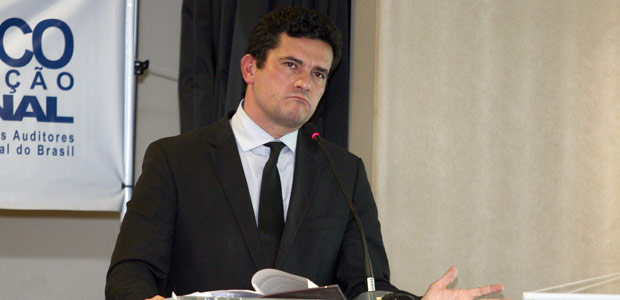Latest Photo Galleries
Brazilian Markets
17h33 Bovespa |
-0,33% | 125.148 |
16h43 Gold |
0,00% | 117 |
17h00 Dollar |
-0,77% | 5,1290 |
16h30 Euro |
+0,49% | 2,65250 |
ADVERTISING
Judge Defends Lawfulness of Telephone Tapping and Compares President Rousseff to Nixon
03/18/2016 - 09h19
Advertising
GRACILIANO ROCHA
SPECIAL ENVOY TO CURITIBA
Judge Sergio Moro defended the lawfulness of the telephone tapping which recorded a conversation between President Dilma Rousseff and former president Luiz Inácio Lula da Silva, which occurred after a court order to interrupt the wiretapping against the latter.
Moro ordered to stop the wiretapping at 11:12 am on Wednesday, March 16. However, the phone call which President Rousseff made to one of Lula's bodyguards occurred at 1:32 pm and the copy of the recording was attached to the Brazilian Federal Police's notices at 3:37 pm.
Judge Moro says the issue has little relevance because in the period of time between the order given by him and the recording, the telephone companies involved had not been notified to interrupt the wiretapping yet.
Judge Moro said that "there was a just cause and legal authorization to carry out the wiretapping." He also says that the conversation which contains arrangements by President Rousseff to deliver the minister declaration of acceptance of office to Lula is "relevant in the context of the investigations."
The Brazilian Federal Police believe that President Rousseff sent the declaration of acceptance of office to Lula as a safe-conduct for him to use in the case of risk of being arrested before he took office as chief of staff, which would give him privilege of venue.
On Thursday morning, March 17, President Rousseff denied trying to protect her predecessor from prison.
In the document, judge Moro selected an iconic case to defend the wiretapping's lawfulness - that of former U.S. president Richard Nixon, who was forced to resign in 1974 amid an impeachment process as he was suspected of trying to impair courts in the investigation of the Watergate scandal.
"Not even the supreme representative of the Republic has an absolute privilege to guard his communication, which was collected herein only fortuitously, and we can cite the well-known precedent of the U.S. Supreme Court in the US v. Nixon case of 1974 as one more example to be followed," Moro wrote.
As Lula took office as chief of staff, judge Moro sent the investigation notices to the Brazilian Supreme Court (STF).
Translated by THOMAS MUELLO
Read the article in the original language
| Paulo Lisboa/Folhapress | ||
 |
||
| Federal judge Sergio Moro |



